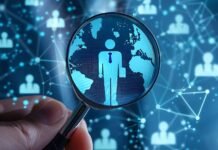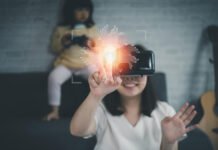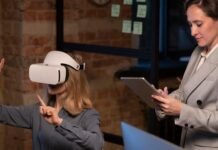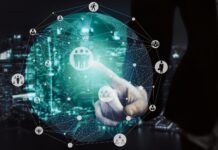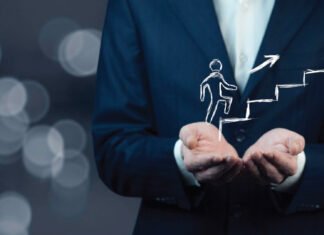What #COVID19 taught (and continues to teach) us

Fun fact: When I wrote our company thesis in Jan 2018, ArcLab didn’t yet ‘exist’. 😅 We were in POC-mode, learning from usage data & feedback on a prototype built in 6 weeks, and incorporated ArcLab only 3 months later.
It’s been an eventful 2 years.
In Aug 2018, ArcLab released our MVP and got accepted to AWS EdStart. We launched the full platform in Jul 2019, welcomed paying customers, and were accepted into the pioneer class of Spaze Ventures’ EduSpaze accelerator in Feb 2020. We were also humbled to be featured in Holon IQ’s inaugural SE Asia EdTech 50 in Jun 2020 and raised investment from Bisk Ventures in Sep 2020.
These milestones provided encouragement to us that ArcLab was solving a big problem, and doing it in a scalable way.
Our work to Upskill the World’s Deskless Workforce is only just beginning. Embracing Amazon founder Jeff Bezos’ famous #Day1 mindset, we continuously listen to our users and build out our platform to serve our customer organisations.
But like most organisations, our original plans and projections never quite factored in an infectious disease that would lock down entire countries and change the face of our world and economy as we knew it.

Volatile. Uncertain. Complex. Ambiguous. — V.U.C.A.
COVID-19 accelerated the paradigm shift that had already started to take hold of the public consciousness.
To me, COVID-19 is the very definition of VUCA. It starts with biology, where individual symptoms may be Uncertain and sometimes Ambiguous, spreads through social behaviour which differs from society to society and can be Volatile, and through various Complex linkages — impacts much of everything around us, notably our economies, jobs, livelihoods, and lives.
Each country’s COVID-19 response differed — a reflection of culture, politics and sometimes plain common sense (or lack thereof). There is still much we don’t know about COVID-19, despite the best efforts of our brightest minds. We can only hope our scientists and doctors make good progress on understanding the disease and developing a vaccine.
The immediate impact of this VUCA disease: Large gatherings of people are no longer possible, for fear of the virus’ spread. Workplaces could no longer function as before. What we took for granted — people meeting or gathering in the same location, could no longer be done.
Truth is: Many of us are generally resistant to change. INERTIA — ‘this is how we’ve always done things so there is no reason to change’ is a big obstacle to progress, even if the alternative is better. From a career perspective, it’s also riskier to propose something new that nobody else is doing, compared with sticking with the status quo, and the safety of ‘everyone else is doing it’.
Until COVID-19 hit.

Human Resource teams became organisations’ champions, helping staff in many organisations transition to the new remote work arrangement. A task made harder by schools also moving to home-based learning at the same time.
For HR, this would prove to be their shining moment. Many proved their mettle and it’s only apt that we give a shoutout to our HR professionals — who got going when the going got tough.
During tough economic situations, businesses are forced to take an even harder look at financial performance. For many companies, COVID-19 hurt top-line, which inevitably impacts their ability to fund running costs, of which a significant portion is headcount and salary.
There is no question that without customers and revenue, firms cannot (and in fact have no need to) fund headcount. Yet talent is also needed to develop product to solve customer needs and grow the business. At ArcLab, we fully understand this as we are a business ourselves.
Several governments stepped up quickly to square the circle through salary support schemes, like Singapore’s Jobs Support Scheme and the United Kingdom’s Coronavirus Job Retention Scheme. Though these, state funds are channeled to help firms fund a percentage of cash burn, while they figure out how to pivot their businesses and continue to operate in a much-changed world.
Except for tourism-related businesses where the recovery to pre-pandemic levels is likely to be some time away, other business sectors are slowly starting to recover, many adding or pivoting to newer (and often-digital) models. This gives some financial space to companies to at least think beyond immediate survival concerns.
With the workplace also transformed, teams in many countries will work remotely at least part of the workweek, and in split arrangements for the foreseeable future. Employers will need to think about how to adapt their businesses accordingly, to operate as an ongoing concern and (if we dare dream it) to grow.
Workforce Training is a Need. Not a Want.
Now more than ever, businesses need strong leadership to strategise, and a high-performing team to execute.
Good businesses are built by high-performing teams.
Highly-performing teams do not happen by chance. The first step is good recruitment — to find good people. Companies also need to:
- Rally hires behind a shared vision,
- Onboard hires properly, and
- Train them in what’s needed to perform their job role.
The last 2 points are important, especially for our junior and rank-&-file workforce. Very few of us take on a role and become expert workers right-off-the-bat. New hires typically go through an Onboarding process to familiarise with the business and their role, followed by an On-the-Job Training (“OJT”) process, mentored and guided by a supervisor or senior.
Implementing OJT and mentoring is hard enough in normal times. It’s time-and-labour-intensive, and does not scale well. So for businesses that employ more than 5–10 staff, it becomes cumbersome and inefficient for supervisors and seniors to train new staff.
A better way is needed, and has always been needed. The solution for scale has always been technology, once we got the training andragogy right.
At ArcLab, we learnt a few things from serving our customers:
- How important it was for the workforce to learn In the Flow of Work. This reduces time away from the shop or factory floor and maximises productivity.
- How crucial it was for training to be Uniform, so the company’s standards can be taught without personal bias (or person-specific incompetence!).
- How useful it is to continuously provide Performance Support to staff through digital training material — Training Manuals, 101s, Primers, Standard Operating Procedures. So staff can easily access information for them to do their jobs AS-AND-WHEN they need it. This is especially important in today’s remote work environment where you can no longer gather staff in a training room, especially across country boundaries.
In our New Normal, it’s no longer possible to gather 1–200 people in a training room. Organisations have to do this more efficiently and effectively. So the way forward is to leverage on the power of digital, and to stage out learning, through bite-sized modules, delivered directly to staff devices.
Moving training to the digital/mobile space also helps businesses reduce time and cost needed for training. This effectively funds free headcount for the business, through the resource savings and productivity gains.
Importantly, mobile learning can bring great uptick in learner engagement, knowledge retention and most importantly, knowledge application. Some of these knowledge application metrics include— the drop in customer complaints, production errors etc, time spent on tasks. These are very tangible business objective metrics and provides a positive return on training investment.
COVID-19 has negatively impacted all our lives. The silver linings we can glean for now are:
- A greater appreciation for the dedication and hard work of our frontline workers — our cleaners, transport workers, delivery and supply chain professionals, healthcare heroes and our educators.
- An irreversible push towards digital and mobile: Video-conferencing, e-commerce, digital payments, tele-health and Digital Learning were all catalysed by COVID-19, and helped make some parts of our lives better to offset the pain and inconvenience it wrought elsewhere.
COVID-19 might yet be with us for some time. Hence, we expect mobile learning to support organisations in a Business Continuity Planning, as well as a Business-As-Usual situation.
ArcLab stands ready to support every organisation in this important part of your Digital Transformation journeys.
For Training is not a luxury for businesses. It is an absolute staple, because without a high-performing team, it’s impossible to build a great business.
For more such Updates Log on to www.hrtechcube.com
ABOUT THE AUTHOR


James Chia
CEO and Co-founder of ArcLab
James Chia is the CEO and Co-founder of ArcLab. ArcLab is a Mobile Learning SaaS platform – empowering organisations to upskill & train deskless workforces effectively, through creating & delivering targetted bite-sized knowledge to teams digitally, on demand.


